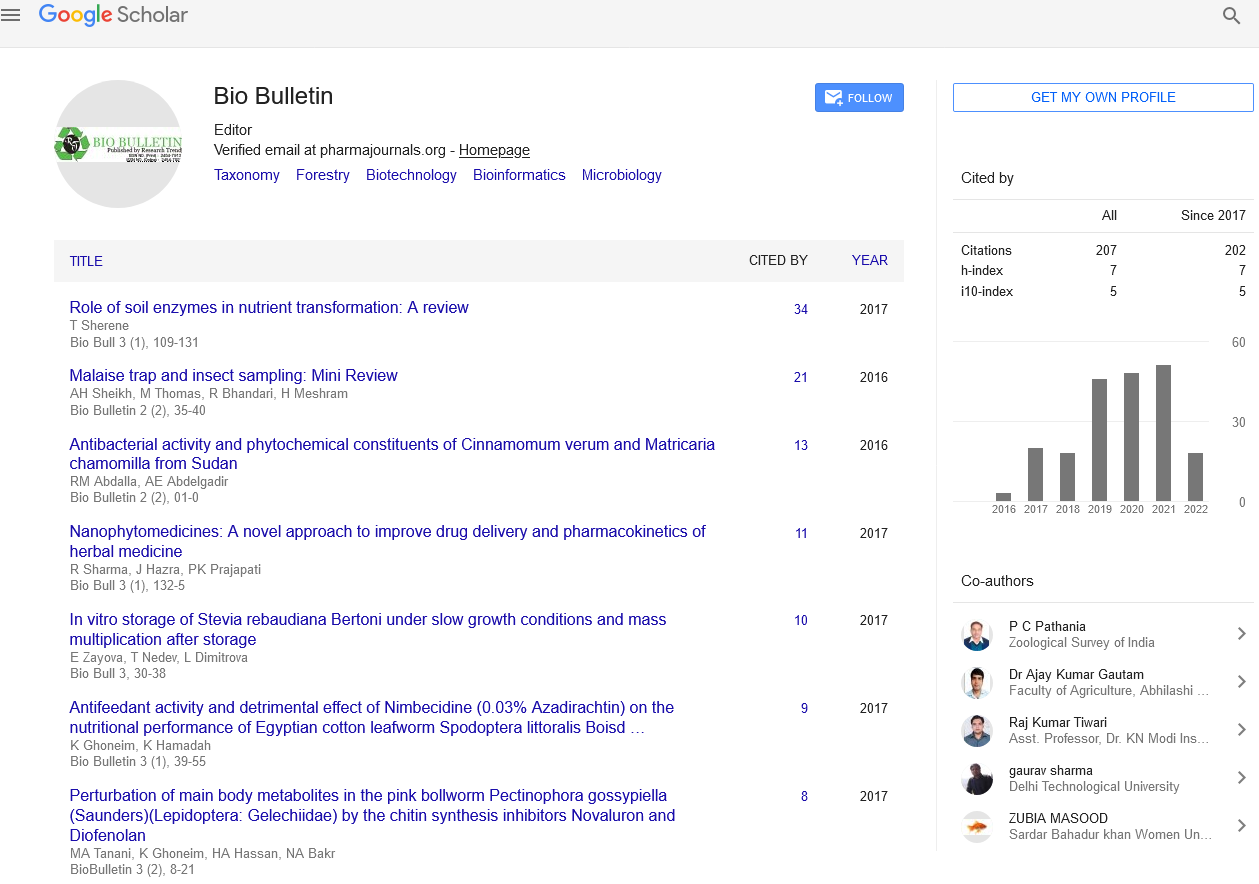Mechanism Involved in the Cellular Metabolism of Immune Cells
Perspective - (2022) Volume 8, Issue 3
Description
The immune system defends against infections and maintains tissue homeostasis throughout the organism's life. Various tasks of immunity are bioenergetically costly, imposing specific management of cellular metabolic pathways. Despite the fact that the first observations in this area were published more than a century ago, studies in the last decade have clarified the molecular basis of how extracellular signals influence food absorption and catabolism in quiescent and activated immune cells. This research has indicated that the metabolic pathways of oxidative metabolism, glycolysis, and glutaminolysis preferentially fuel cell fate decisions and immune cell effector actions.
Recent findings propose a broad framework for understanding how metabolism feeds and governs immune response maturation. A deeper knowledge of the metabolic checkpoints that control these changes could lead to new approaches for modifying immunity in infectious, cancerous, and inflammatory diseases. The immune system constantly senses and responds to environmental dangers throughout the organism's existence, a process that has a significant bioenergetic cost. For instance, recognising a pathogen or an environmental injury causes innate immune cells to secrete cytokines, chemokines, and inflammatory mediators, as well as adaptive immune cells to clonally expand. As immune cells lack considerable nutritional storage, these effector responses can only be sustained if immune cells significantly increase their intake of glucose, amino acids, and fatty acids from their surroundings. Indeed, as discovered over a century ago, glucose is important for the formation of an effector innate response. Similarly, extracellular glutamine has long been known to be required for the mitogen-driven proliferation of adaptive immune cells.
Due to the efficacy of checkpoint inhibition and adoptive cellular therapy, immunotherapy has become a well-established cancer therapeutic method. Cellular metabolism has emerged as a crucial factor in cancer and immune cell survivability and function. Tumors use a unique metabolism that differs from untransformed somatic cells in order to sustain tremendous anabolic requirements. This metabolism results in a tumour microenvironment that is frequently acidic, hypoxic, and/or deficient in key nutrients required by immune cells. Tumor metabolism is a checkpoint in this context that can impede immune-mediated tumour elimination.
The connection between cancer cell metabolism and immune metabolism is therapeutically important way to understand as immune cell metabolism and cancer metabolism has advanced dramatically in the last decade. Although metabolic mechanisms appear to be crucial to both cancer and responsive immune cells, metabolic variability and adaptability may serve to differentiate the two. As a result, understanding the varying metabolic requirements of the many cells that make up an immune response to cancer provides a chance to selectively regulate immune cell function.
In general, immunological responses are made up of both the innate and adaptive immune systems. When a pathogen is encountered, the innate immune response, which consists of neutrophils, monocytes/ macrophages, and Natural Killer (NK) cells, is the first stage and is nonspecific and quick. The adaptive branch of the immune response, which consists of a tiny fraction of lymphocytes that are highly specific for any pathogen/antigen includes T cells and B cells, defines the second stage. Immunological memory has previously been linked to cells of the innate immune system, also known as trained immunity, in addition to the adaptive immune system. Numerous human diseases are influenced and regulated by innate and adaptive immunity.
According to rising evidence, metabolic reprogramming mediates immune cell functional alterations during immunological responses. Current understanding of metabolic regulation in various immune cells and their subsets in response to pathogenic stimuli has been described and analysed. An interactive biochemical and molecular model was developed to define metabolic reprogramming and its functional implications in anti-inflammatory, immunological resolution, and proinflammatory responses.
Conclusion
This summarise two major features of metabolic reprogramming in innate and adaptive immune cells during the inflammatory stage: one is energy production and biosynthesis reprogramming, including increased glycolysis and decreased oxidative phosphorylation, to ensure faster ATP production and biosynthesis for defence response and damage repair. The other feature is epigenetic reprogramming, including increased histone acetylation and suppressed DNA methylation, due to altered accessibility of acetyl.
Author Info
Zhilin Su*Citation: Su Z (2022) Mechanism Involved in the Cellular Metabolism of Immune Cells. Bio Bulletin, 8(3): 03-04.
Received: 19-Aug-2022, Manuscript No. BIOBULLETIN-22-77660; , Pre QC No. BIOBULLETIN-22-77660(PQ); Editor assigned: 22-Aug-2022, Pre QC No. BIOBULLETIN-22-77660(PQ); Reviewed: 05-Sep-2022, QC No. BIOBULLETIN-22-77660; Revised: 12-Sep-2022, Manuscript No. BIOBULLETIN-22-77660(R); Published: 19-Sep-2022, DOI: 10.35248/2454-7913.22.8.099
Copyright: This is an open access article distributed under the terms of the Creative Commons Attribution License, which permits unrestricted use, distribution, and reproduction in any medium, provided the original work is properly cited.

